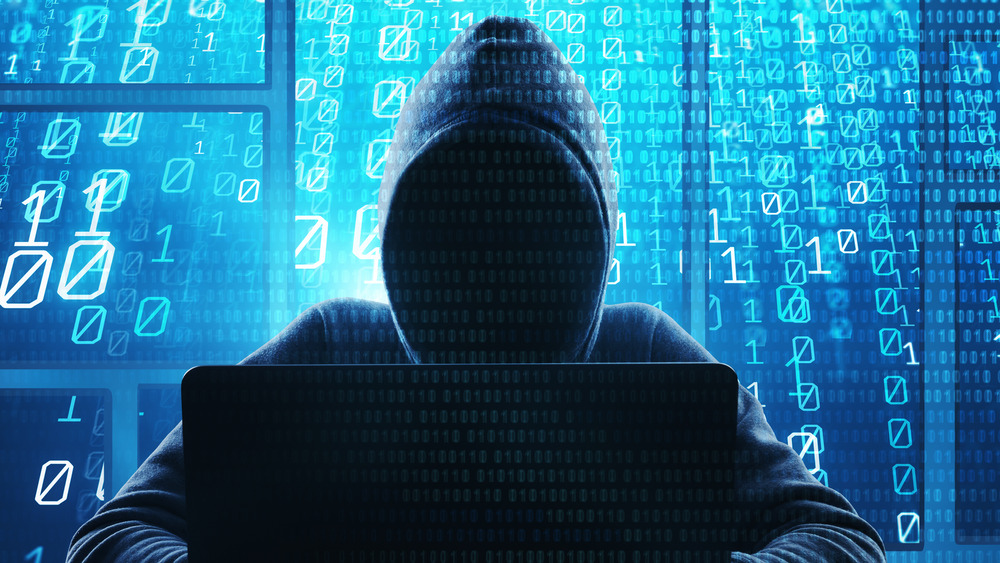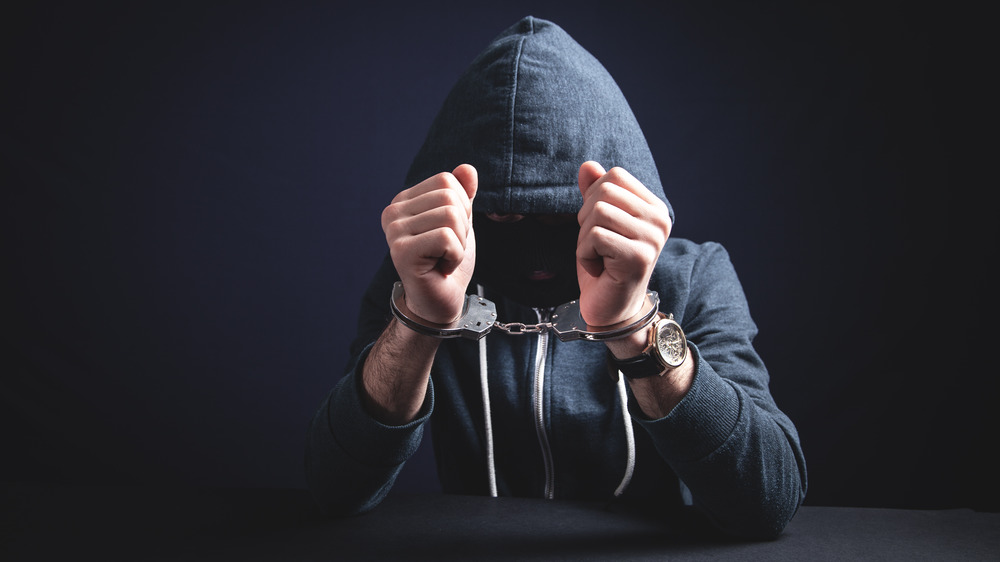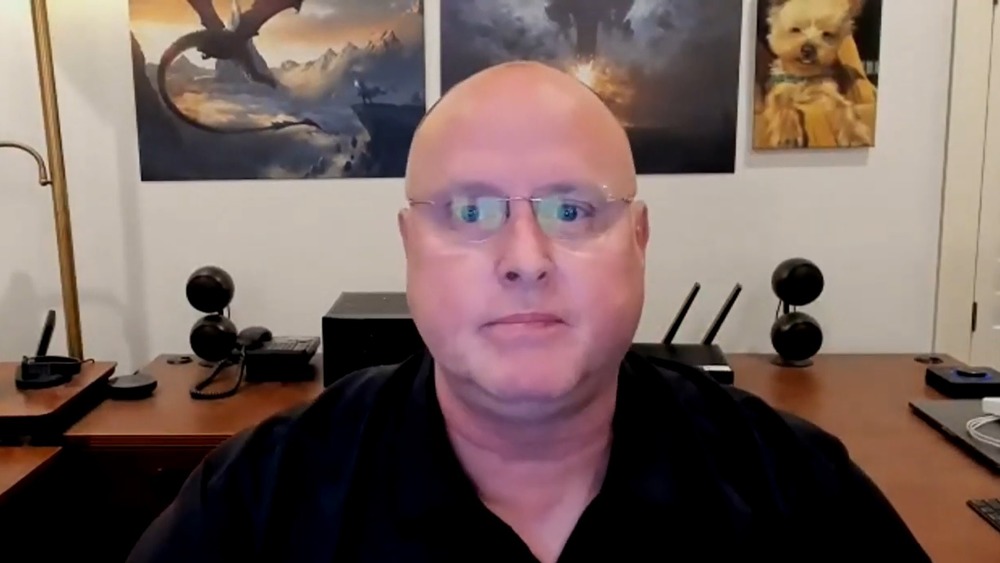The Untold Truth Of The Lizard Squad
In the age of online gaming, a distributed denial-of-service (DDoS) attack can grind entertainment to a halt. This favored weapon of hackers around the globe has been used to disrupt streamers, game events, and studios alike. While the internet is infested with numerous hacker groups and solo acts, the Lizard Squad stands head and shoulders above the rest for sheer infamy.
The Lizard Squad has claimed responsibility for some of the biggest hacks and DDoS attacks in gaming history, including crippling legions of gamers who'd hoped to play their new Xbox One and PlayStation 4 consoles on Christmas Day 2014, something they'd even warned beforehand that they'd do. The squad is so notorious that many of its numbers have been arrested — and smaller, unaffiliated groups have used the Lizard Squad name to spread fear.
While most of the Lizard Squad's activities are common knowledge, a few might have flown under the radar or been swept under the rug of collective internet memory. Either way, here are some untold truths about the Lizard Squad.
They created their own worst enemy
In comic books, superheroes ironically create their archnemeses. In the real world, the opposite is true, since apparently the only person who can defeat a hacker is another hacker.
The Lizard Squad Christmas Day DDoS is one of the most infamous in gaming history. Millions of gamers couldn't play their fresh Xbox One and PlayStation 4 consoles. In retaliation, a new group of hackers emerged, the Finest Squad, who had one goal: beat the Lizard Squad at their own game. These hackers for justice uncovered the personal information of numerous Lizard Squad members. Their public Twitter accounts and personal websites were released to the internet. This led to numerous Lizard Squad members quitting, as well as several arrests, but the Finest Squad wasn't done. To drive the final nail in the Lizard Squad's coffin, the Finest Squad sent Microsoft and Sony everything they found on the companies' respective network vulnerabilities.
Their job finished, the Finest Squad disappeared into the digital ether that spawned them. While the Lizard Squad remains to this day, the group is severely hobbled, all because they pissed off the wrong gamers with the wrong DDoS at the wrong time.
Hackers of a feather DDoS together
Lizard Squad's members thrived on anonymity. Because nobody knew who they were, these hackers could DDoS to their heart's content. In fact, for all victims knew, several Lizard Squad affiliates could have allied with other hacker groups to throw pursuers off the trail. Turns out that's exactly what some of them did.
The early days of Pokémon GO were full of server problems, not helped by the actions of PoodleCorp. This organization claimed responsibility for numerous DDoS attacks against the game, as well as similar hits on other titles. In 2016, one of its members, Zachary Buchta, was arrested and accused of running a "DDoS-for-hire platform," among other charges. One of the biggest bombshells of his arrest was Bachta also carried a Lizard Squad membership card. Buchta was arrested alongside fellow Lizard Squadmate (and possible PoodleCorp hacker) Bradley Jan Willem van Rooy.
While not every member of the Lizard Squad was part of PoodleCorp and vice versa, the secret behind the latter's success is tied to the groups' shared blood. Of course, as the arrests of Buchta and van Rooy demonstrated, when one group lost its star hacker, usually so did the other.
The Lizard Squad really hates John Smedley, and the feeling is mutual
While the Lizard Squad is best known for attacking game companies and fans, the group has occasionally gone after individuals, usually those affiliated with video games. One such person led an organization that was a popular target for the Lizard Squad, and when he voiced his opinion about their illegal actions, they took umbrage with his stance.
John Smedley, ex-boss of Sony Online Entertainment and later Daybreak Games, was once a constant target of the Lizard Squad. He was Sony Online Entertainment's head honcho when the Lizard Squad DDoSed PlanetSide 2 and when the Lizard Squad attacked Daybreak in retaliation for Smedley attempting to pursue a civil case against the convicted Lizard Squadmember Julius Kivimaki. But before all that, Smedley was the victim of a bomb threat allegedly perpetuated by, you guessed it, the Lizard Squad.
In 2014, Smedley was flying from Dallas to San Diego when the Lizard Squad claimed a bomb was stashed on the plane. The flight was diverted to Phoenix to be properly investigated, and the FBI got involved. Not a single explosive device was found, and Smedley vowed revenge/justice against the Lizard Squad.
You're either with the Lizard Squad or you're against them ... unless you're North Korea
Every once in a while, the Lizard Squad has stepped outside its comfort zone and attacked a non-game entity. The group still usually resorted to its common tactics of DDoSing, but the Lizard Squad was always trying to cripple its target. Case in point, the little, secluded country known as North Korea.
Several days before the infamous Christmas Day DDoS of 2014, the Lizard Squad allegedly took all of the country's 1,024 IP addresses down in a swift DDoS attack. The country was without internet for two days (not that it had a lot of internet to begin with), and during that time, Sony was hacked over The Interview, a movie about an interview-turned-assassination of North Korea's leader.
The running theory is while the Lizard Squad took down North Korea's internet, it also waged a similar attack on Sony, possibly at North Korea's request. Why would North Korea want to ally with the Lizard Squad right after it crippled the country's already shoddy internet is a mystery. Perhaps the North Korea DDoS attack was some sort of test? Nobody knows for sure.





